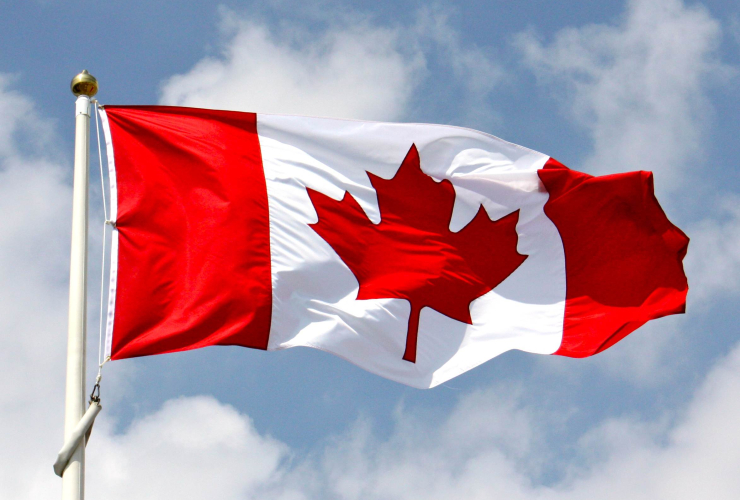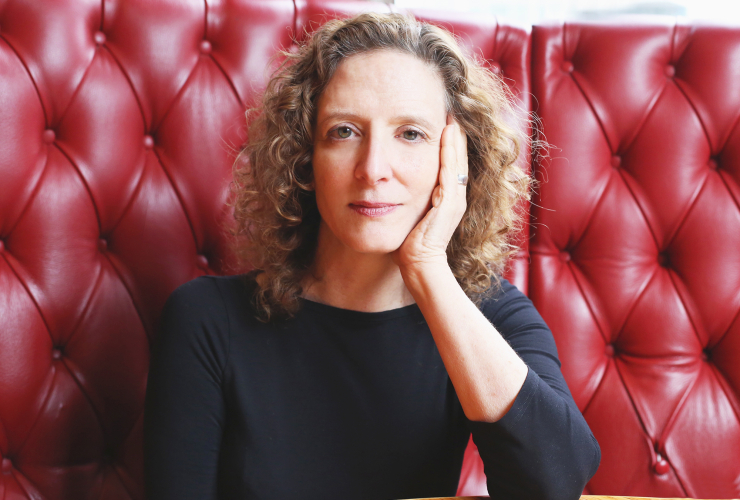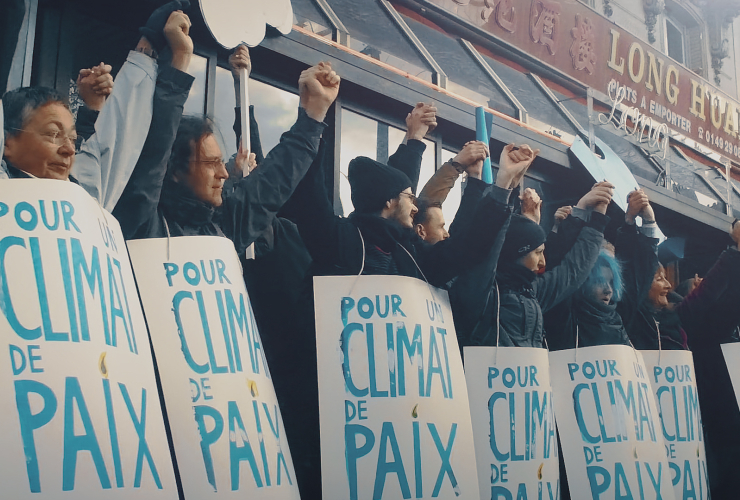When I first met Joyce Wood, I was uncertain how she'd receive me. I was set to become her daughter-in-law and she was already well into her eighties and living near Osoyoos, B.C.
That first visit, Joyce invited me into her bedroom to show me the family portraits filling the walls. And she told me the stories behind all those faces, the faces she loved. There was so much diversity represented in those portraits it astonished me.
As many of you know, my life is bound up in story. It's why I became a journalist and it's what's driven me for 10 years to build a new media company in Canada. So, you won’t be surprised to know that I loved Joyce’s stories.
Every trip we made to visit, the photos came out and I saw the remarkable relationships that Joyce had, for the most part, with her grandchildren and great grandchildren. There were problems, too, of course, like in any family, and she worried over them.
She told me about growing up in the boarding house run by her parents, meeting her future husband, Don, as a teenager, and later, her job working in a grocery store as a cashier. She told me a lot about my husband as a young boy. The birdhouse they built together. His quiet strength. His love of the out of doors and how she hated it when he hit the high mountain trails and went out of touch.
She told stories about her nine siblings, and showed off pictures of her grandchildren and great-grandchildren. I was so moved by Joyce’s big heart, how she was able to welcome her children's and grandchildren's spouses and partners into her fold and to make a wide range of people feel accepted. I'm pretty sure that my children and I brought the first Jewish culture into this family of atheists, fundamentalist Christians, Asian spouses, single mothers, mixed-race grandchildren, same-sex couples, divorces and remarriages, as well as those married solidly for decades, like Joyce and Don. When Dave and I married and our children gained step-siblings, our Canadian extended family celebrated.
What a beautiful Canadian family, so representative of the best of what Canada is and what Canada represents to the world: seeing beyond differences, recognizing our shared humanity—in this family, we truly are one family.
When my sister-in-law called to let us know Joyce was dying, and we arrived at her room, I was once again amazed at the wonderful diversity and character of this family. There they all were, three generations at her bedside. And the love they gave Joyce was unbelievably moving. I’ve been asking myself since then, what did it say about Joyce that she was able to maintain so many complex relationships over so many years, through what I’m sure were many ups and downs, and to be there for so many in the family. To me, this says more about a person’s life than anything else could. I haven’t been around for the years of history this family shared, the many beautiful times, the inevitable hard times, the wonderful joyous times. But one thing I saw clearly was this family’s capacity to love and protect each other.
I was surprised by how affected I was by her death. I didn’t really know her long. Six years, I guess. And during the last few years, she was really struggling.
But, you know, emotions aren’t really rational, and when someone embraces you with love and kindness when they really didn’t have to, you don’t forget it easily. I never will.
Joyce died at the end of July, just as National Observer hit a major cash shortfall and crashed. I was bracing myself to give it all up. When someone close dies, you stop and re-evaluate your own life. You look around at your children, your spouse, and you ask the big questions: What is the best I can do with my precious time on earth? How can I make my life matter? How can I be sure those around me realize how precious they are to me?
You become wonderfully aware of the passage of time, how we come and go like drops of rain. You want to hold on only to things that really matter and love with all your heart. Yet the days go on and the curtain closes on the clarity, grief recedes and life resumes its ordinary patterns. In the midst of all this, I reached out to all of you and, thanks to what came back from you, I know that National Observer is 'the best I can do,' that it makes my life matter.
Now, here we are at the end of 2016. And I'm asking myself what else I can possibly say in my last letter to you this year. So many words have already been spoken. Over the last 12 months, I've repeatedly asked you for money. I've asked you to subscribe. I've shared the highs and lows I've gone through in running the publication. I've talked with you about how absolutely vital journalism is in a healthy democracy and I've written about the scary attacks we've been seeing on journalists. You're still here, listening and reading. Thank you for sticking with me through this time, thank you for valuing National Observer's team and work, and for caring about excellent, independent journalism.
As the year closes, there's a lot at risk. Should I dwell on the outcome of the U.S. election, or the normalization of terrorism, or the devastating tragedies unfolding in Syria? Shall I confide how it makes me feel to watch as hundreds of thousands of people like me and you become refugees, children dying in the arms of their parents, the rise of anti-Semitism, the brutal misogyny we're seeing?
The cacophony of suffering is so loud and ubiquitous, my heart has broken so many times, yet it still isn't numb. How is that even possible?







Comments